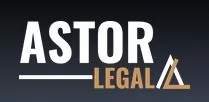Former NRL player Darrell Trindall's Supreme Court bail application has been granted on domestic violence charges.
The 50-year-old will be released to a specialist rehabilitation program which focusses on addresses drug and alcohol issues of Indigenous people.
Trindall labelled his first time in jail, "just what I needed".
Domestic Violence Charges
Darrell Trindall was initially charged with common assault after an alleged domestic violence incident on 10 October 2021.
He was granted bail for that offence but was later charged with further domestic violence offences on 7 March 2022.
These included two counts of assault occasioning actual bodily harm, stalk/intimidation and a further charge of common assault.
He was refused bail by police before making a bail application in the Local Court. This was refused and he was remanded in custody.
Subsequently he was sentenced for the October common assault offence to a 12-month community corrections order with supervision. There was also an apprehended violence order (AVO) made. AVO lawyers in Sydney explain that upon a finding or plea of guilty for a domestic violence offence, an AVO must be made.
Supreme Court Bail Application
Following this, the ex-NRL player filed a Supreme Court bail application seeking his release to a residential rehabilitation facility.
NSW Supreme Court Justice Mark Ierace granted the bail application on the condition that Mr Trindall attend the Marrin Weejali rehabilitation program. This program is specifically for drug and alcohol issues of Indigenous people.
Trindall told the court that his first time in jail was "just what I needed".
His criminal lawyers argued that the rehabilitation facility would address the underlying factors which led to his criminal record. Specifically, this related to his alcohol abuse.
Bail application lawyers regularly offer a bail condition that an applicant accept all reasonable directions of the rehabilitation facility.
Support for Rehabilitation
Justice Ierace stressed the importance of Trindall attending the program and give it his best shot.
"Yes, Your Honour I understand, thank you very much. This is my first time in jail. It is just what I needed. I will do exactly what the court orders."
His Honour accepted that Trindall had reached a point of realisation about his alcohol issues.
"I note also the matters with which he has been charged have been set down for hearing in January 2023, five months hence."
As well as attending the program, the bail conditions include abstaining from drugs and alcohol, being subject to a curfew and residing with his partner.
"Mr Trindall I wish you well and hope you get some benefit from the program," the judge concluded.
The former halfback made 171 NRL appearances for South Sydney and Canterbury-Bankstown between 1990 and 2002.
Bail Application for Domestic Violence Charges
To make a Supreme Court bail application for domestic violence charges, the following steps must be followed:
- Prepare and file a written Supreme Court bail form with the Supreme Court Registry;
- The Court will provide a date for callover and the release application itself;
- All documents must be filed by the callover date and confirmation by the Crown and applicant that it can proceed;
- The case will then be listed for Supreme Court bail hearing where the application will be heard.
Supreme Court release applications take longer to be listed than Local Court or District Court applications. Once the application has been filed it will be placed into the Supreme Court bail list.
If there is a proposed surety, then this person should be in attendance at court. There should also be affidavit evidence from the surety, as well as any person who the applicant will live with and any person who is offering the applicant employment.
Some applications will be based on the applicant entering a residential rehabilitation program. In this situation, there will need to be evidence from the rehabilitation centre that there is a bed available, the conditions in the facility, the length and details of the program and that any breaches will be reported to police and the court.
These documents will need to be provided to the Crown by the callover date so they can advise whether they wish to cross-examine any of the witnesses.
Generally, a Crown prosecutor will appear and oppose bail. As such, you will need an experienced domestic violence lawyer in Sydney. You can contact Astor Legal on (02) 7804 2823 or email us at info@astorlegal.com.au.
The NSW Supreme Court has the power to grant bail after a person has been bail refused by the Parramatta bail court, central bail court or any other Local Court.
The power for the Supreme Court to grant bail is set out in section 66 of the Bail Act 2013.
If a person is already on bail and wants to vary their bail conditions, then they can file a variation application. After hearing the application, the court can refuse the application, or vary the bail decision. There is also a possibility that the variation may lead to tougher bail conditions.

